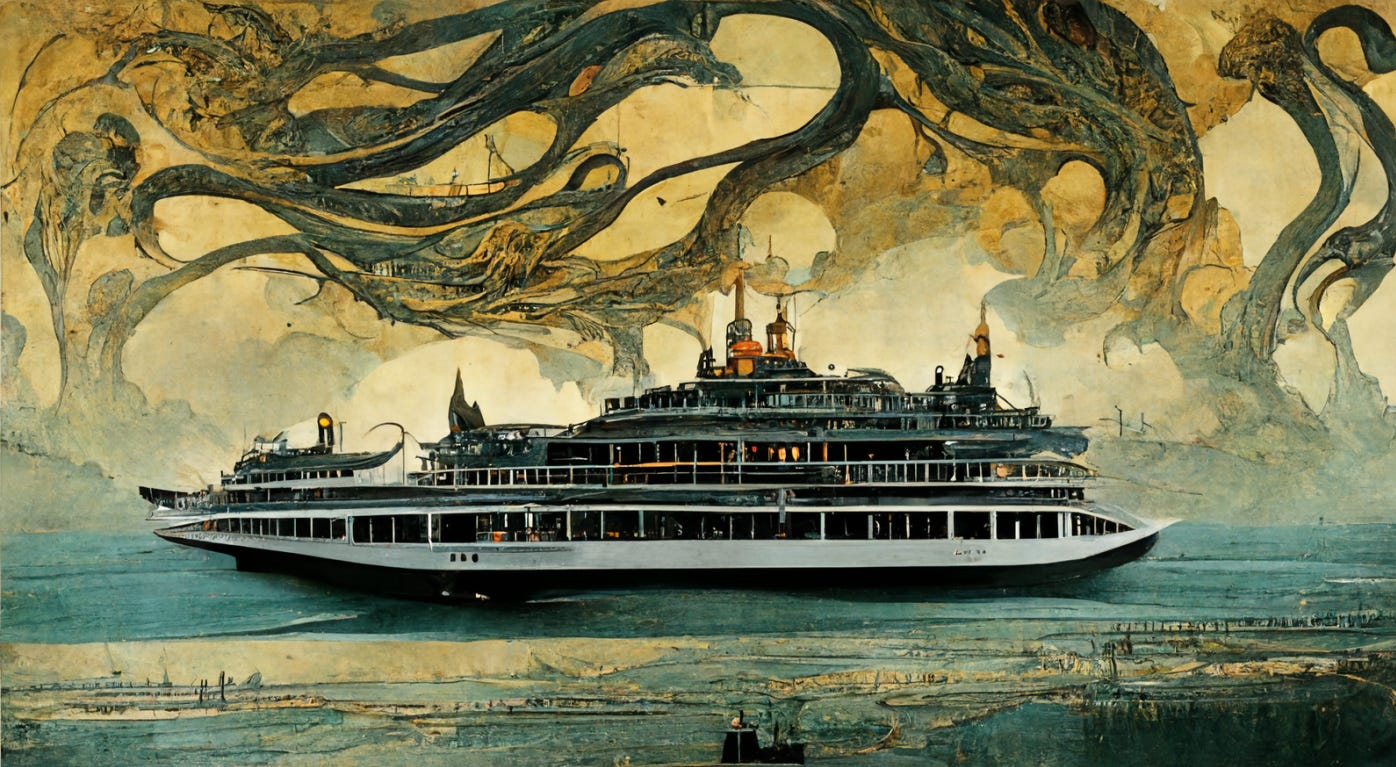[Short story] The Philosopher
We know it's a cult but it's something to do.
We're on a cruise ship when the nuclear war happens and it is very bright and it wakes me like the sun has pulled open my eyelids. The captain decides we are not going back to Hawaii, we are heading south to New Zealand. I can see Oahu behind us, glowing. It is only 9am but it is quickly becoming night. Much later we will learn that it was the shortest war in history.
Everybody is in chaos and tears and the captain boards himself up in the bridge. In his absence a gangly, awkward man takes over. He calls himself a philosopher and says that all weak men now shall perish and it is up to us to be strong and build the new earth. He says life before the war was sick but now we can be cured.
Everybody is amazed at his confidence. It has only been hours and everybody is slowly remembering another thing lost forever: Hollywood and Guinness and roller coasters and Amazon and European vacations and everything. But he sits on a little chair on the dining hall stage and is not affected. He tells us he has gone to bed every night for four decades resigned to the possibility of not waking up so this means nothing to him. He tells us we are concerned with material things when we should have been concerned with our souls.
He starts making us into cooks and janitors and wives and servants for the new society. We know it's a cult but it's something to do. Some semblance of order. What's the alternative? We are unhappy but we were going to be unhappy no matter what.
This goes on for about an hour when, suddenly, the captain comes out of the bridge. What's going on here? He immediately understands. No, no, no. This is unacceptable. This is a cruise. You're supposed to be enjoying yourselves. What's all this? Wives? Servants? He quotes Wilhelm Reich at us: Why do men fight for their servitude as stubbornly as though it were their salvation?
The philosopher only grins mysteriously. We (as a mass) cry out: If we have learned anything from the war it is that our souls need salvation.
The captain quotes Foucault: The soul is the prison of the body.
Now we don't know what to do. We look from the captain to the philosopher.
The captain says to us: I cannot free you for there is nothing to free. Your only master is yourself.
His words stir us to action. I rise first and call for a democracy upon the cruise ship. The crowd rises beside me and shouts yes, yes! We shall be individuals!
The philosopher is enraged. He starts to shake, and then he leaps at the captain like a jaguar or a swarm of crows or an insect. The captain sidesteps him and punches him in the gut. He carries the philosopher to the deck and throws him into the water.
We all cheer. We can nearly forget that the world is ruined for we have a true leader and a democracy and our individuality. We make sure to have an election. One confused old man runs in opposition, thankfully, and we elect the captain as king. He returns to the bridge and bids us to enjoy our cruise.
In the end it was good that it happened the way it did because it was all practice for what was to come. When we make it to New Zealand the place is full of cults with more arriving by the day. With the captain as our king, we cut our way through, and forge a kingdom of free men.



